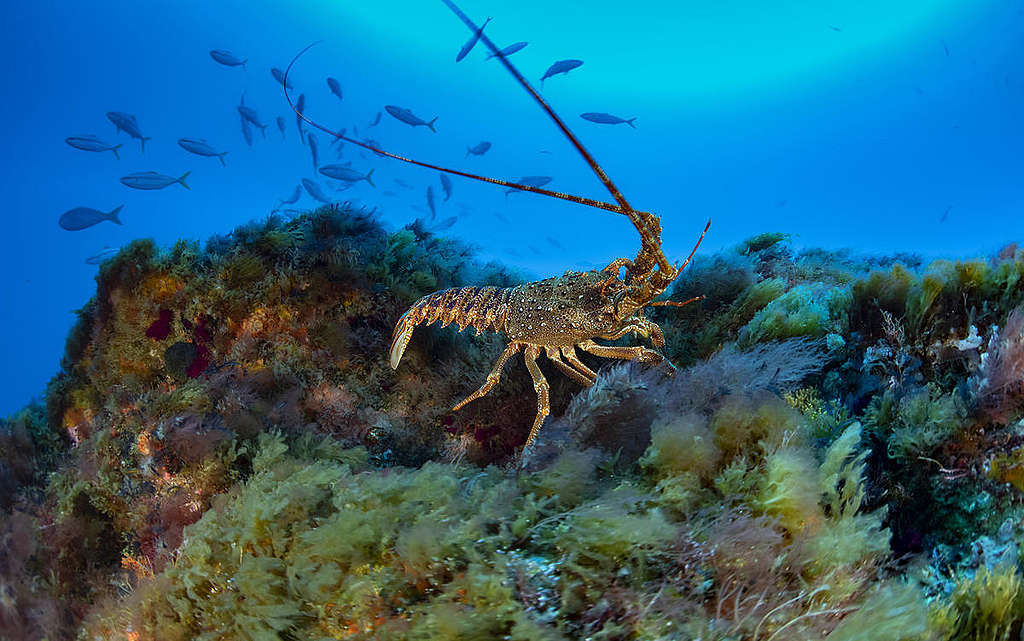Dakar, Senegal, 21 November 2021 – This Sunday, the world is celebrating World Fisheries Day, but in West Africa the scarcity of fishery resources threatens the jobs of thousands and the food security of millions.
“The seas in West Africa are a treasure that we must protect. All over the world, illegal fishing and overfishing is emptying our seas, and threatening the livelihoods and food security of so many people,” said Dr Aliou Ba, Oceans Campaign Manager for Greenpeace Africa.
Every year, more than half a million tonnes of fish caught in West African waters are processed into fishmeal and fish oil in order to feed farmed fish, livestock and animals in Asia and Europe, according to a previous report by Greenpeace Africa and Changing Markets.
Greenpeace Africa is urging the Senegalese government to freeze new permits for establishing fishmeal factories, as was previously recommended by the 24 October 2019 government consultation on fishmeal and fish oil factories. Greenpeace is also calling for factories using whole fish fit for human consumption to be closed.
“This fish could create jobs and feed people in my community, or anywhere in West Africa. But instead, it will be used to feed farmed fish and animals in Europe or in Asia. This has to stop!”, said Fatou Samba, President of the Association of Women Fish Processors of Xelcom, in Bargny, Senegal.
This growing threat to the fishing sector comes at a time when the status of women processors is still not formalized in Senegal. Such a status should allow them to access labor rights and benefits, such as social security and consultation rights in fisheries management.
This World Fisheries Day, Greenpeace Africa is demanding:
- The government recognition of the profession of women fish processors.
- The closure of factories using whole fish to produce fishmeal and oil.
- More transparency in the governance of the fishing sector, starting with the publication of the list of industrial fishing vessels authorized by Senegal.
- Efficient and sustainable management of the fish stocks shared by West African’s coastal nations.
Press Contact
Amagor Robert Niang
Communications Officer, Greenpeace West Africa
Contact : +221771834049
 Get Involved
Get Involved
